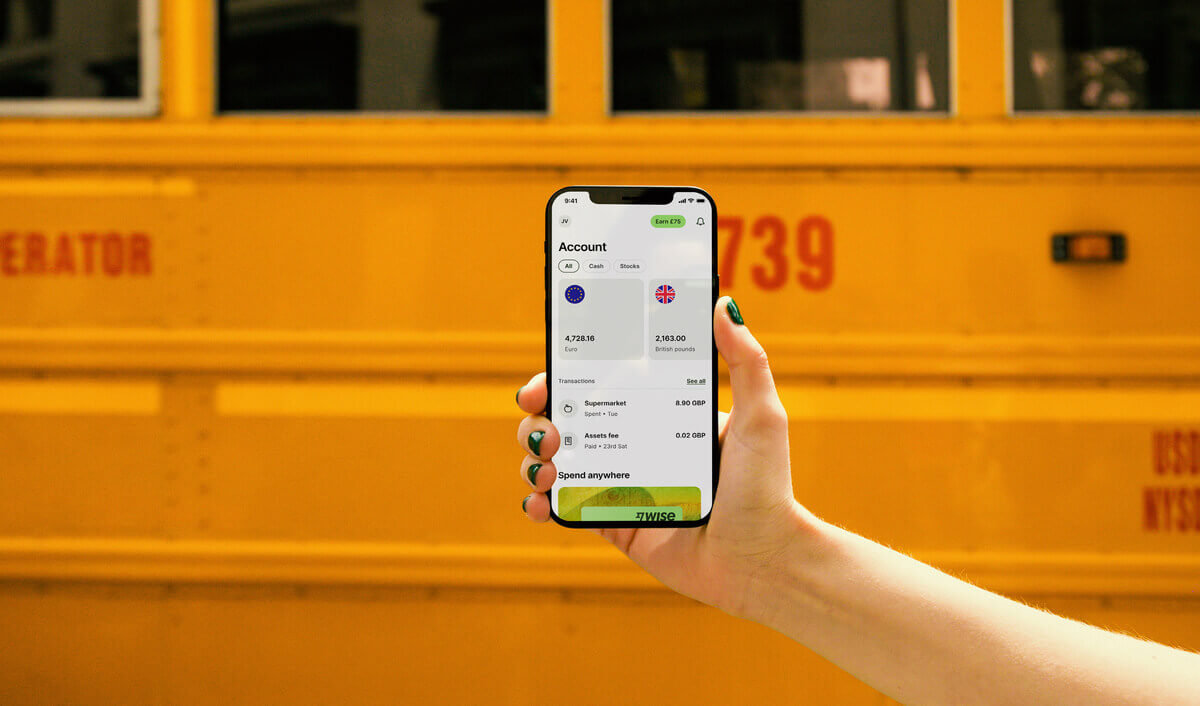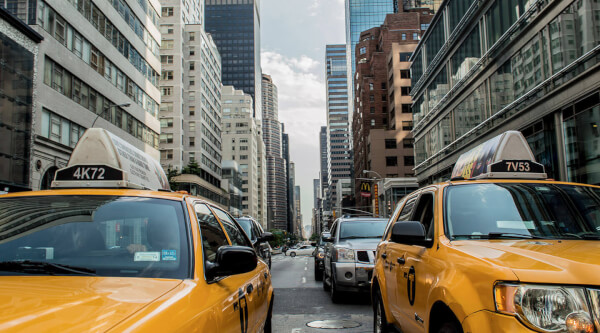Open bank account in Portugal for South Africans
Discover how you can open a bank account in Portugal as a South African, including information about what you need, the best Portuguese banks and more!

Given its status as an economic powerhouse that boasts not just the world’s largest economy but a dynamic and diverse job market, it’s unsurprising that the number of South Africans moving to the USA for work has increased substantially in recent decades.⁵
For many South Africans, America has become a home-from-home; several American states have significant South African populations, while South African-born CEOs lead the way in several innovative industries. Put simply, the American dream is still very much rife for South African professionals looking to further their careers in the US.
If you’re considering chasing this dream and seeing just what America can offer you on a professional level, this article will explain everything worth knowing about working in the US as a South African.
We’ll also give you a quick introduction to Wise, an international money transfer services provider that can help you save money if you’re thinking about sending some of your wages back to South Africa.⁴
South Africans need to apply for an immigration visa to legally work in the USA. There are approximately 140,000 immigrant visas available each fiscal year for foreign professionals (and their partners and children) who want to come to the United States and work.⁶
After you obtain an immigration visa, you will be eligible for a green card - and subsequent status as a permanent resident in the US.
There are a number of different immigration visas available for South African professionals who want to move to America for work. Below are three of the most common.
If you are an international worker of ‘extraordinary ability’ or a particular multinational executive or manager, you might be eligible for an EB-1 Visa. This employment-based visa is usually the most expedited path to gaining permanent residence in the United States, however, it’s also the most tricky visa to qualify for.
If you have an advanced degree or exceptional abilities in the arts, sciences or business, you might be eligible for an EB-2 Visa. This employment-based visa is usually easier to qualify for than the EB-1 Visa.
Before submitting an application for an EB-2 Visa, your employer will need to apply for a permanent employment certification (PERM). It’s possible to go around this requirement by petitioning for a National Interest Waiver.
The EB-3 Visa is the most popular employment-based visa for foreign workers. Those eligible for an EB-3 Visa are professionals with a baccalaureate degree in the USA (or equivalent abroad) and skilled workers with a minimum of 2 years of experience.
Similar to an EB-2 Visa, your new employer in America must apply for a PERM on your behalf.
Job opportunities in the US are vast - and many South Africans take leading roles in several industries across American states. There are also several South African networking organisations in America. These groups are on hand to help newly immigrated professionals quickly climb their way up the professional ladder.
You can find a wide variety of job vacancies on the following online portals:
The diverse job market in the United States means that earning potential in the country can be great. Below is a table of the average yearly income for seven different occupations in America.
| Occupation | Average Annual Salary (USD)¹⁵ | Average Annual Salary (ZAR) |
|---|---|---|
| Accountant | $65,000 | 1,232,347 ZAR |
| Investment Banker | $165,000 | 3,128,801 ZAR |
| Civil Engineer | $87,513 | 1,659,459 ZAR |
| Dentist | $146,354 | 2,775,227 ZAR |
| Data Analyst | $78,646 | 1,491,319 ZAR |
| Lawyer | $102,964 | 1,952,592 ZAR |
| Digital Marketing Manager | $80,000 | 1,517,107 ZAR |
If you’re a South African expat living in the USA, Wise can help you save money¹ when making international money transfers back to South Africa.
Although the majority of US banks will allow expats to make international transactions, they normally add a markup onto the mid-market exchange rate, meaning you end up paying more for your transfer.
The mid-market exchange rate is the rate that banks use to transfer money between them and is considered the fairest rate in the market. Find out what you would pay for an international money transfer with Wise:
Wise customers don’t have to pay an additional markup fee but only a small transparent fee to make an international transaction¹. That’s because Wise uses the mid-market rate for overseas payments!
With Wise, South African expats can save money¹ when making international payments from the USA to South Africa.
The application process for an employment-based visa and a green card for permanent residency will differ depending on your situation. However, most applicants will go through a process similar to this:¹⁶
It takes anywhere between 7 to 33 months to process a green card application.¹⁷ The processing time varies considerably depending on USCIS processing times and the type of application you’re submitting.
Given the popularity of America for South Africans looking to work overseas, it’s unsurprising that many often ask “Can I work in the US without specifically obtaining a work visa?” However, if you live outside the United States and wish to be employed in the country, you must apply for a visa that enables you to legally work. If you work without a permit, you’ll likely face consequences from the US authorities.
The cost of applying for the three most common US work visas, EB-1 visa, EB-2 visa and EB-3 visa, is generally the same. However, all three applications are split into various compulsory forms - each with its own fee.¹⁸
| Form type | Cost (USD) per person | Cost (ZAR) per person |
|---|---|---|
| Form I-140 (Immigrant Petition for Alien Worker) | $700 | 13,256 ZAR |
| Form DS-260 | $345 | 6,533 ZAR |
| Form I-864 (Affidavit of Support) | $120 | 2,272 ZAR |
| Biometrics fee | $85 | 1,609 ZAR |
If you’re applying for an EB-2 and EB-3 Visa, your employer must also apply for a permanent employment certification (PERM) with the US Department of Labor. Submitting a PERM application needs to be done before filing an immigrant petition with USCIS and can take around a year to complete.¹⁹
Professionals looking to come to the US on an EB-2 Visa can bypass this requirement by petitioning for a National Interest Waiver instead. This can significantly speed up the immigration process.
In the majority of cases, applying for a visa to work in the US requires an American employer to sponsor a foreign professional for a visa or green card. It’s the responsibility of the employer to demonstrate there aren’t any qualified American workers available to fill the role and support the professional’s application to receive immigration benefits.
Getting the required documents and paperwork together to apply for a US work visa can often be a lengthy process. While the majority of the documents you need for an EB-1, EB-2 and EB-3 visa application are the same, there are a few additional bits of paperwork you may require depending on the visa you’re applying for.
Required documents for EB-1, EB-2 and EB-3 visas:²⁰
America is a major host for students looking to study abroad; the number of South African students moving to the US is rising year on year.²¹ However, when it comes to getting part-time employment on a student visa, there are several restrictions to be aware of.
The majority of international students will come to the US on an F1 visa. While this visa allows you to take any job on campus for no more than 20 hours a week during term time, it has certain limitations for off-campus employment.²²
After you have completed your first academic year, international students can engage in three variations of off-campus employment: curricular practical training (CPT), optional practical training (OPT) and STEM optional practical training extension (STEM OPT).
Some students on an F1 visa might be able to work off-campus in other positions following severe economic hardship or a form of special student relief.²³
International students can work full-time during academic holidays or their annual break, however, you must be registered for the following semester before you take up full-time hours.²⁴
With more than 4 in 10 students wanting to stay in the US and work after graduation,²⁵ continuing your life in the United States after your studies have finished is a popular choice for many overseas students. However, if you do want to stay in America and work, you need to apply for the relevant visa.
Several visas allow international students to stay in America and find employment:
Bringing your partner and family members over to the US with you is an important part of relocating to the country for work. Fortunately, many American visas allow you to include dependents in your application.
If you’re applying for an EB-1, EB-2 and EB-3 visa to reside and work in the USA, you can also include your spouse and unmarried children (under the age of 21) in your visa application. This will make them eligible for derivative visas - which we’ve explained below.
If your I-140 immigration petition is approved for the above visas, you can invite your partner and unmarried children to apply for admission to the US on several different immigration statuses:
There currently isn’t a self-employed visa for self-employed professionals looking to relocate to the US.³² This is because the majority of American work visas require an employer to sponsor an applicant from overseas.
One possible route for freelancers to move to America is the O-1 Visa, or the visa for Individuals of Extraordinary Ability or Achievement. The O-1 Visa enables foreign professionals who have shown ‘extraordinary ability’ in various fields or have a record of notable achievement in TV or motion pictures to stay in the USA for up to three years.
While America’s E2 Visa allows entrepreneurs from 80 specified treaty countries to set up a business in the US, South Africa unfortunately isn’t currently part of this treaty.³³
Instead, those interested in investing in a new US business - even if not their own - might be eligible for the EB-5 Immigrant Investor Visa. This visa enables South African professionals to invest in companies in the USA - and become permanent residents in the country.
Shortly after you arrive in the US, you’ll need to do the following:
| Pros | Cons |
|---|---|
| The US is home to the world’s largest economy and boasts a multitude of job prospects across several diverse industries. | American work culture can be intense. US workers tend to work longer and take fewer holidays. They also get less maternity and family leave time than in other countries. |
| There are lots of South African business links in the country, including networking organisations to help new professionals quickly grow in their careers. | The US immigration process can be complex and long-winded, especially if you are waiting on a permanent employment certification. |
Relocating to the US from South Africa is a great opportunity for professionals looking for not just somewhere they can expand their professional potential, but a home-from-home with a significant South African population.
If you’re considering moving to America for work, it’s important to research which employment visa you’d be eligible for, and think about whether you’d also be compatible with the turbulent (and sometimes stressful) work culture in the US.

In terms of money management, Wise is a great international money transfer services provider for overseas payments if you’re debating sending some of your salary back to South Africa.⁴
*Please see terms of use and product availability for your region or visit Wise fees and pricing for the most up to date pricing and fee information.
This publication is provided for general information purposes and does not constitute legal, tax or other professional advice from Wise Payments Limited or its subsidiaries and its affiliates, and it is not intended as a substitute for obtaining advice from a financial advisor or any other professional.
We make no representations, warranties or guarantees, whether expressed or implied, that the content in the publication is accurate, complete or up to date.

Discover how you can open a bank account in Portugal as a South African, including information about what you need, the best Portuguese banks and more!

Considering moving to Ireland to work? Here’s what South African professionals need to know about work visas, the Irish job market, and the application process.

A complete breakdown of everything needed to open an account in France as a South African.

Everything you need to know about working in the Netherlands as a South African: visa types, application costs and processes, and working as a freelancer.

Discover how to open a bank account in Ireland as a South African, including info about the documentation you need, the best Irish banks and more!

Everything you need to know about setting up your bank in the USA as you move from South Africa.